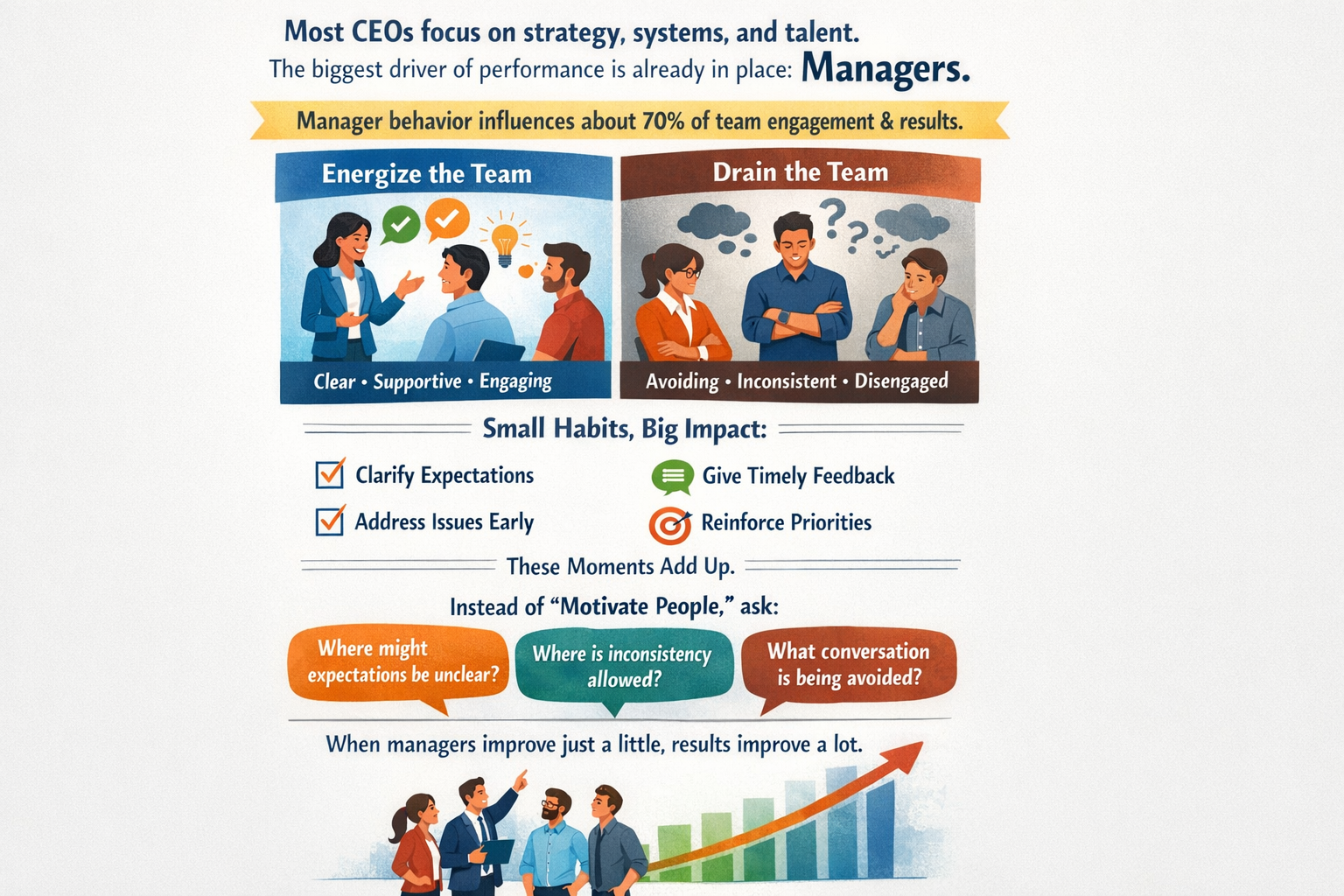Your Employees’ Strengths Make Your Company Stronger and More Profitable

Focusing on employees’ strengths does more than engage workers and enrich their lives. It also makes good business sense. Gallup recently completed an extensive study of companies that have implemented strengths-based management practices.
By positioning employees to work from their strengths – doing what they do best – they have higher energy, less stress, and are six times more likely to be engaged at work.
Additional research provides a compelling business case for implementing a strengths intervention showing performance increases, which, even at the lower end, are impressive:
10%-19% increase in sales
14%-29% increase in profit
3%-7% increase in customer engagement
9%-15% in engaged employees
6 to 16 point decrease in turnover (in low turnover organizations)
26 to 72 point decrease in turnover (in high turnover organizations)
22%-59% decrease in safety incidents.
All employees have strengths – the unique combinations of talents, knowledge, skills, and practices that help them do their best daily. These strengths provide employees and employers with their greatest opportunity for success. And, the best way to do that is through their managers.
Wondering how to get started? Here are some best practices to begin moving into a strengths-based culture:
- It starts with leadership. When isolated departments implement strengths interventions, a limited impact can be achieved. When leaders make these interventions a strategic priority, change really happens. For example, when leaders push strengths through the entire organization, the potential for increased employee engagement and profitability multiples.
- Don’t assume your employees know their strengths. People often take their powerful talents for granted, may be unaware of them, or undervalue them because it comes so naturally. Spend time in conversations with employees to uncover their strengths and consider using standard assessments for a more detailed picture.
- Generate awareness and enthusiasm company-wide. Managers can communicate the company’s business strategy in terms of the company’s unique strengths. Employees use their strengths more when the strengths concepts are consistently communicated.
- Be mindful of strengths when creating project teams. Leaders need to create ways for all employees to increase their self-awareness; they should also employ tactics to ensure teams are assembled reflecting each individual’s innate talents.
- Use team meetings to help team members deepen their understanding of the strengths approach. Encourage them to be open with their fellow team members about their strengths and help them think strategically about how to complete a successful project using all of the members’ abilities and talents.
- Focus performance reviews on the recognition and development of employees’ strengths. A strengths-based approach is straightforward, appealing, and decisive. Conduct performance reviews that encourage and use each employee’s talents and offer development aligned with their strengths. Provide clear performance expectations and help employees set achievable but challenging goals based on their strengths.
Employees can’t completely avoid their weaknesses. However, instead of wasting too much time trying to improve in areas in which they are unlikely to succeed, form strategic partnerships and thoughtful processes that help them work around those weaknesses.
Higher employee engagement, increased profitability, lower turnover, and helping your employees make a difference based upon their talents to contribute to the organization’s goals and objectives will create greater success throughout each department and the company as a whole.


